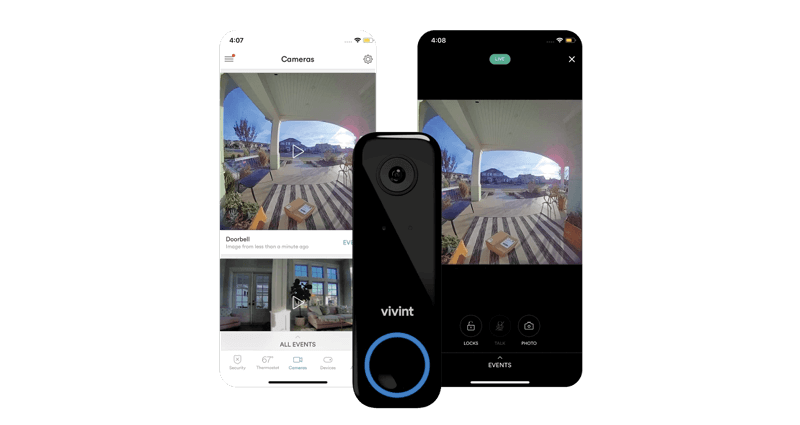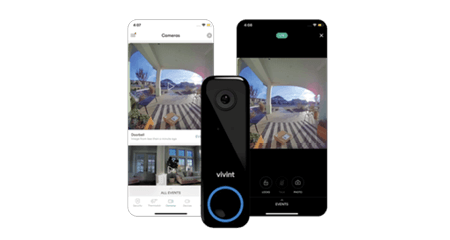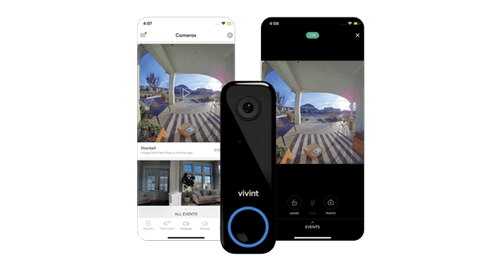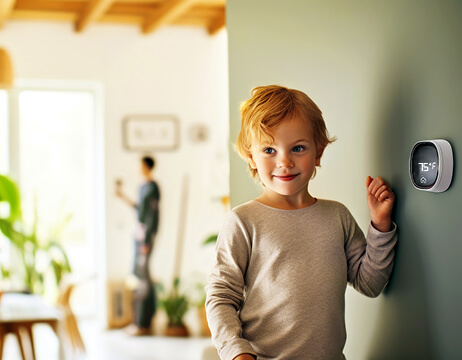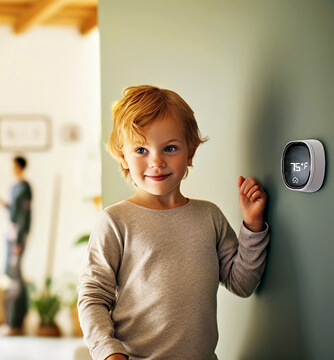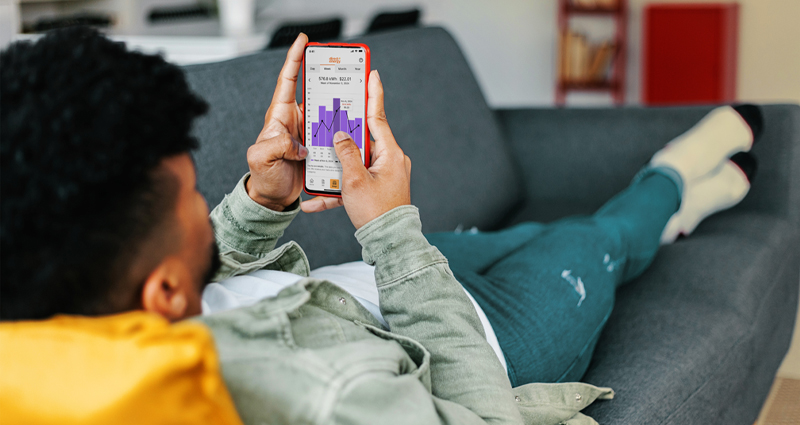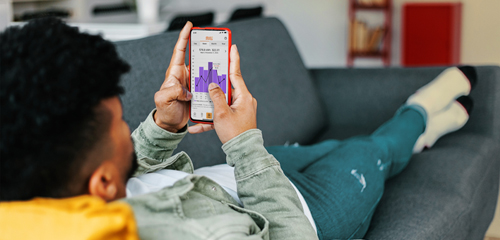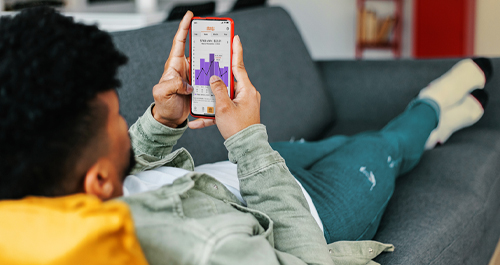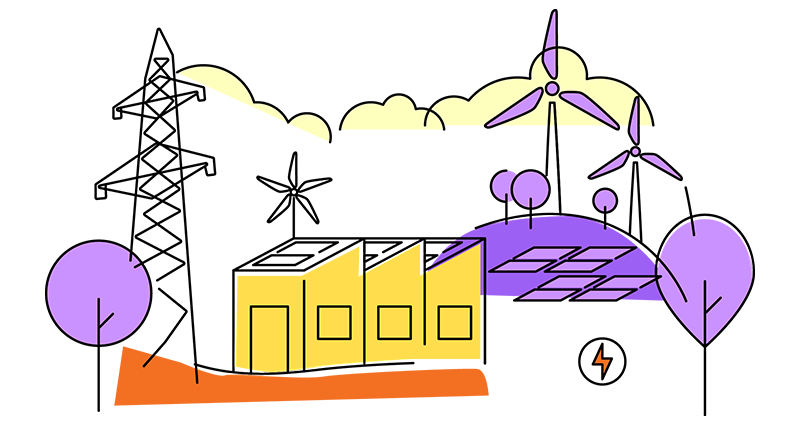How much energy do air conditioning and heating use?
As your primary source of comfort from extreme outdoor temperatures, your HVAC system uses the most electricity in a home, clocking in at more than half of the average U.S. home's energy consumption. An average central HVAC unit uses more than 2,000 kWh of electricity per year. Try to reduce the workload of your HVAC system with these tips:
- Use ceiling fans - counterclockwise in the summer and clockwise in the winter
- Turn the thermostat up to 78°F in summer and down to 65°F in winter
- Get your air conditioner and furnace tuned up annually
- Draw your curtains during sunny summer days, but open them during winter to get free heat
- Replace your air filters
- Don't block inside vents or outside units
- Dust and vacuum to prevent clogs
- Dress lightly in summer and warmly in winter
- Use blankets and scarves for extra wintertime warmth
Read more tips: Inexpensive tips to improve the energy efficiency of your HVAC | How do I take care of my air conditioner in the summer? | What temperature should I set my thermostat in the summer?
How much electricity does water heating use?
As another often-used appliance, your water heater can account for as much as 18% of your home's energy usage. An average water heater typically runs about 3 hours a day, and the average household spends up to $600/year alone on water heating. Use these tips to take the heat off your energy bill:
- Set your water heater's temperature to 120°F or lower
- Wash your clothes in cold water
- Insulate the hot water pipes
- Turn down your water heater when you go on vacation
- Install low-flow shower heads and faucets
- Upgrade to a solar water heater
How much energy does lighting use?
Lighting accounts for about 4% of a typical home's energy use. How much energy light bulbs use can vary widely based on bulb type and usage. Reduce the electricity usage of your lights with these tips:
- Turn off lights when you leave a room
- Use energy-efficient LED light bulbs
- Use natural light, especially in winter, when you also get the benefit of heat
- Choose LED holiday lights and put them on timers so they don't stay on all night
- Install motion detectors on outdoor security lights so they only turn on when you need them
What other appliances and electronics use a lot of electricity?
Appliances and electronics account for about 23% of the typical electric bill. Below are some tips on how to save on your major appliances' energy use:
Refrigerator
- Don't overload your refrigerator
- Keep most-used products in accessible areas
- Arrange contents for optimal efficiency
- Set your fridge to the manufacturer's recommended temperature
- Regularly clean behind and underneath the refrigerator to maintain airflow
- Replace older refrigerators with modern, energy-efficient models
Read more tips: How much electricity does my refrigerator use?
Washer and dryer
- Wash full loads
- Wash with cold water
- Avoid overfilling the machines
- Use drying racks when possible
- Clear lint after each load
Electric oven and stove
- Opt to use a toaster oven, microwave, slow cooker or other smaller appliance
- Use the oven and stove during cooler hours of the day
- Don't preheat unless it's necessary for the dish to cook properly
- Turn off the burners a few minutes before the dish is done and let the residual heat do the rest
Dishwasher
- Wash full loads
- Turn off the heated dry
- Wash during cooler hours of the day
- Pre-rinse heavily soiled dishes to prevent the need for a second cycle
Electronics
- Deactivate standby mode and quick-start settings
- Shop for ENERGY STAR-certified electronics
- Turn down screen brightness on televisions and monitors
- Always turn off electronics when they're not in use
- Choose more energy-free entertainment activities like reading and board games
Harnessing smart home technology for energy savings
Modern technology offers powerful tools to monitor and control your home's energy consumption. Smart home devices can automate energy-saving practices, provide insights into your usage patterns and give you remote control over your appliances.
- Smart thermostats: Smart thermostats can automatically adjust heating and cooling based on your routines and connect to demand response programs like Direct Energy Reduce Your Use®, helping lower energy consumption. You can also control them remotely to condition your home only when needed, maximizing comfort and efficiency.
- Smart plugs: These allow you to turn ordinary appliances into smart devices. Plug in lamps, coffee makers or entertainment systems, and then schedule them to turn off when not in use or control them from your smartphone, eliminating phantom load (vampire power).
- Smart lighting: LED smart bulbs can be scheduled, dimmed or turned off remotely, drastically reducing lighting costs. Some even integrate with motion sensors, ensuring lights are only on when a room is occupied.
Integrating these devices can lead to long-term savings and a more convenient, energy-efficient lifestyle.
Looking for more ways to reduce energy use? Check out these 25 energy-efficient tips to help you lower your monthly electricity costs.




